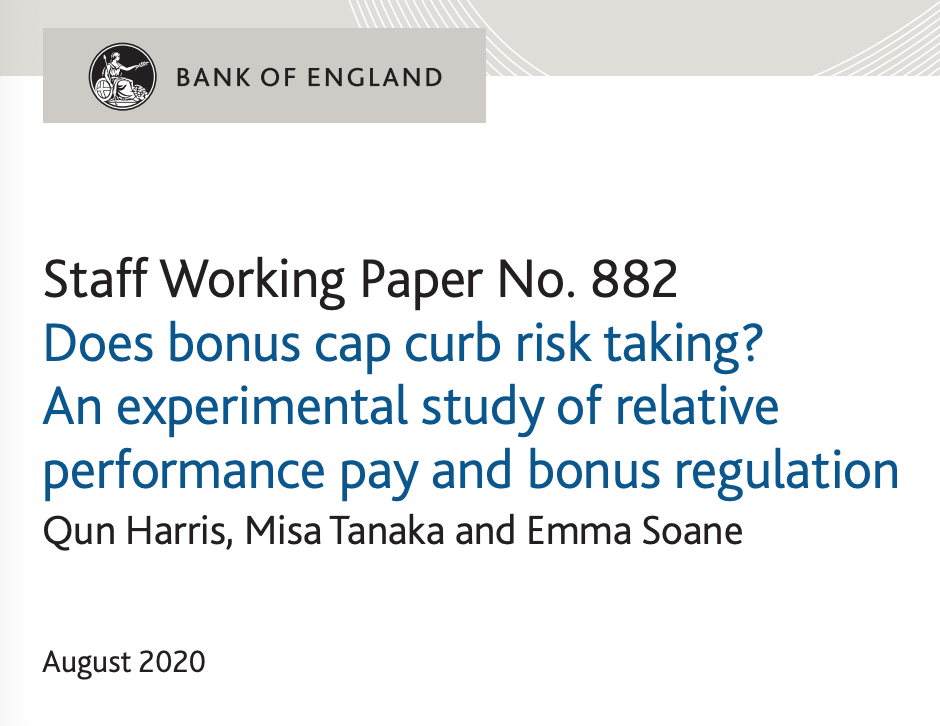Banker Bonus Cap "Curbs" Excessive Risk-Taking Tyler Durden Mon, 08/17/2020 - 04:15
The Bank of England (BoE) published a new study Friday (Aug. 14) to examine whether a cap on banker bonuses rolled out a decade ago post-financial crisis can thwart excessive risk-taking.
The working paper titled "Does bonus cap curb risk-taking? An experimental study of relative performance pay and bonus regulation" found that higher risk-taking was associated when bonuses were linked to how well an individual, or team, preformed.
"Despite the modest stakes offered to the participants, our study demonstrates that bonus schemes may affect risk choices, and certain restrictions on bonus payments might reduce risktaking," said BoE staff.
The survey of 253 participants found "in the absence of relative performance pay, bonus cap, and malus reduced risk-taking. With relative performance pay, the risk-mitigating effects of bonus cap and malus were significantly weakened; but participants took less risk when the bonus was made conditional on their team avoiding a loss."
"This finding supports the view that some appropriately designed restrictions on bonus payments could mitigate excessive risk-taking. However, our findings suggest that commonly used bonus practices – such as relative performance benchmarking – might undermine the risk-mitigating effects of regulatory bonus restrictions," said BoE staff.
The publication of the study comes as bankers in London are hoping the European Union's cap on banker bonuses can be discarded now the country has exited the EU, noted Reuters.
And while UK bankers push for higher bonuses this year, Wall Street is about to get "shafted" come bonus season despite the Fed pumping an endless flood of liquidity into markets.
https://ift.tt/31Tg5O0
from ZeroHedge News https://ift.tt/31Tg5O0
via IFTTT


0 comments
Post a Comment